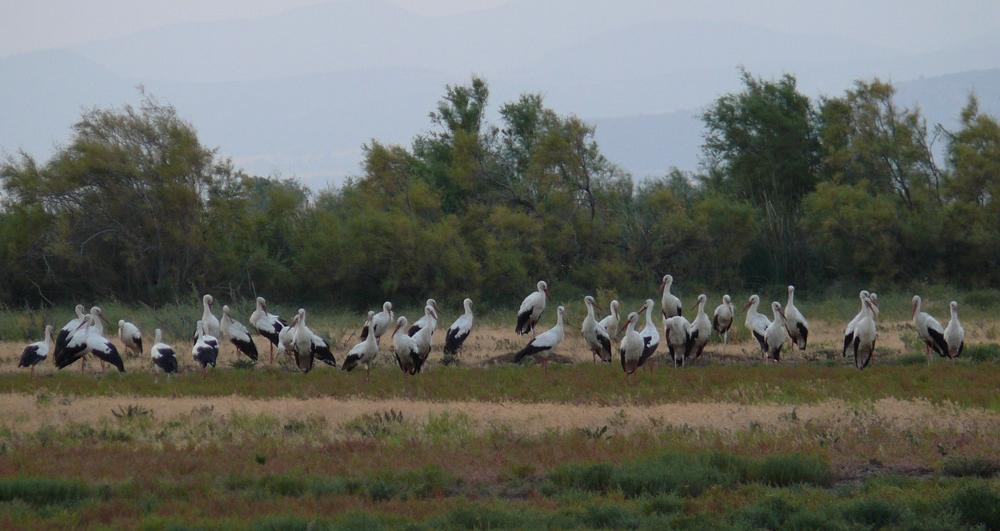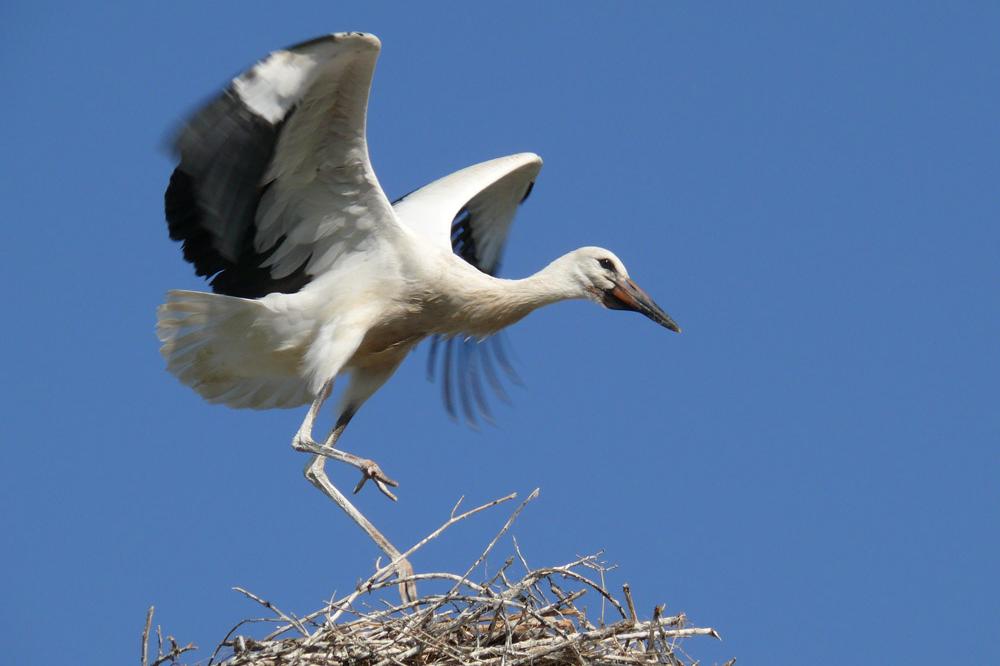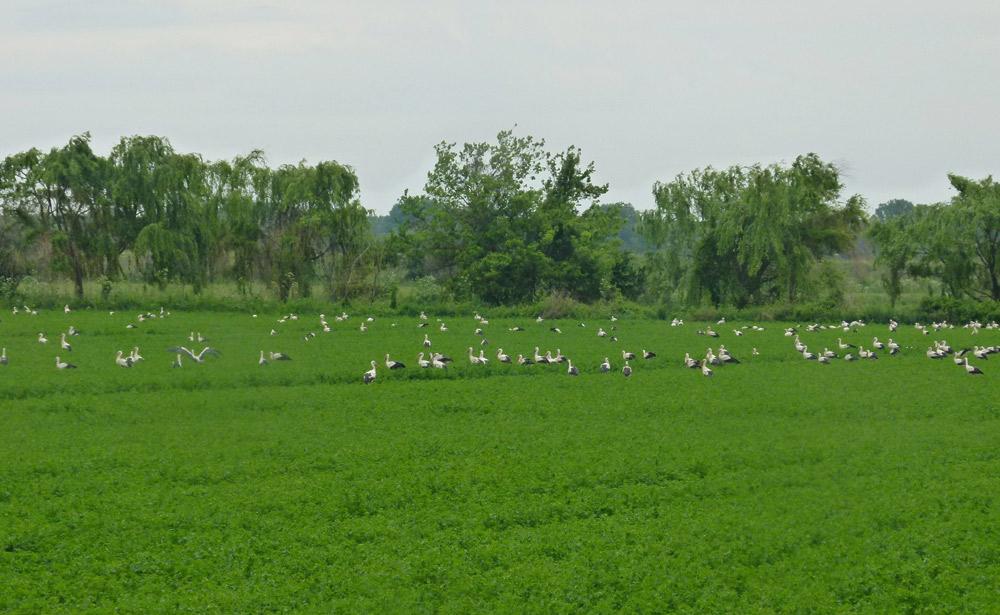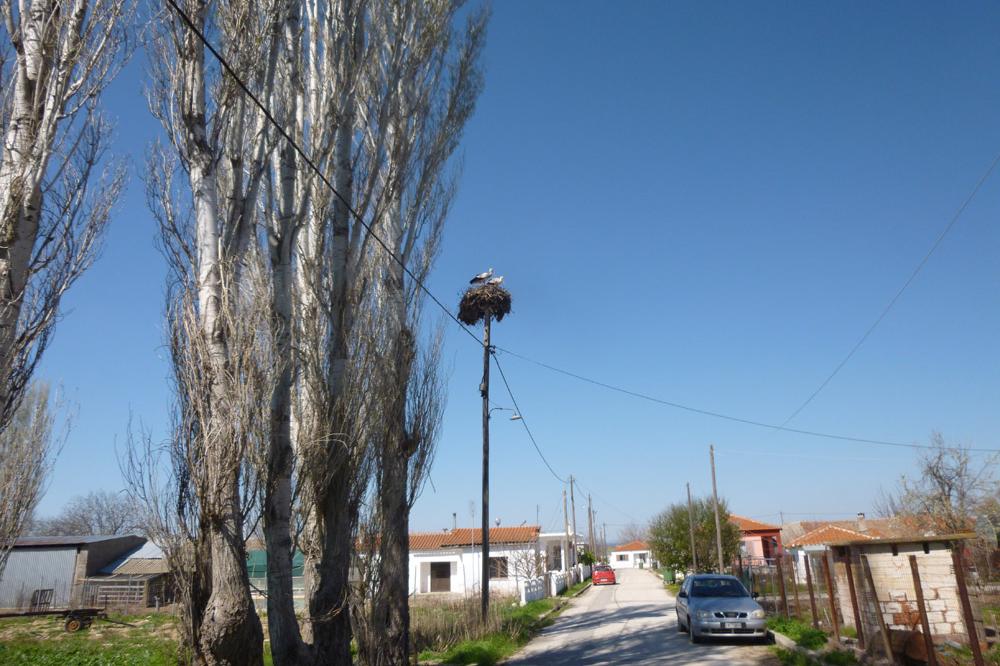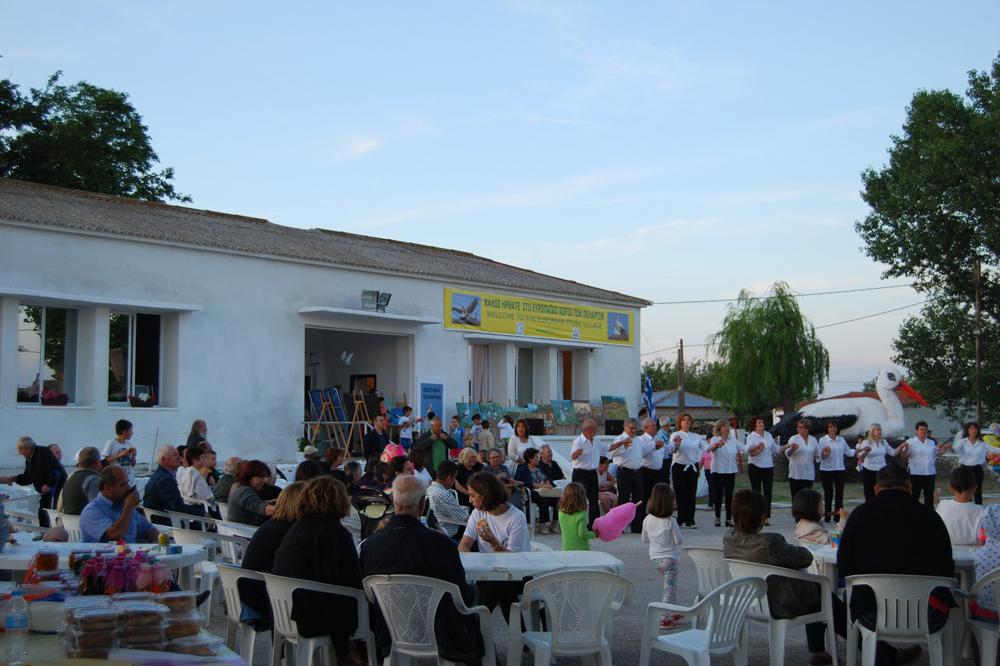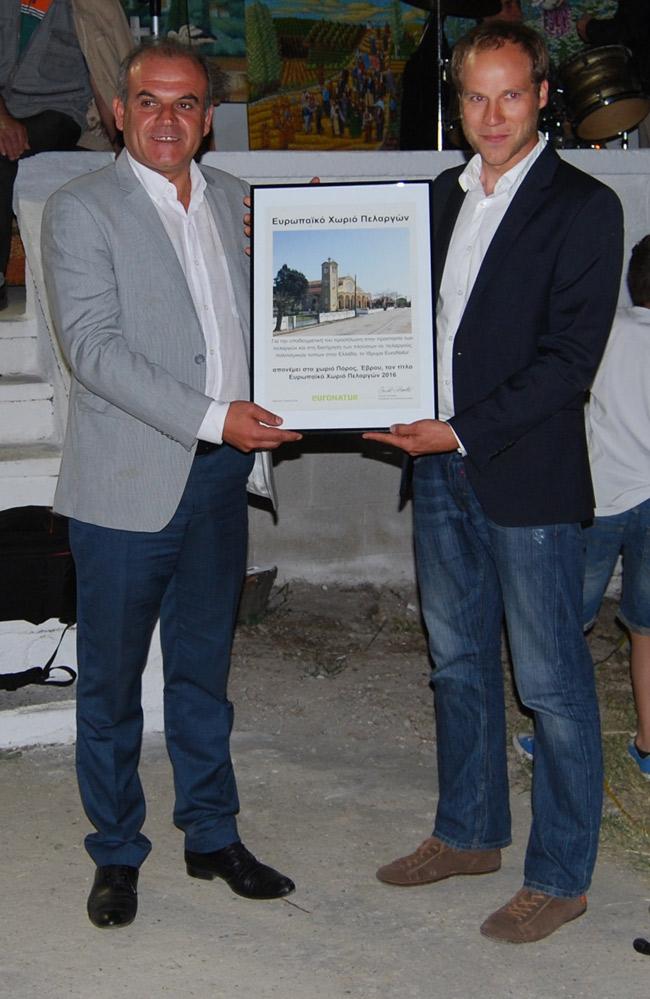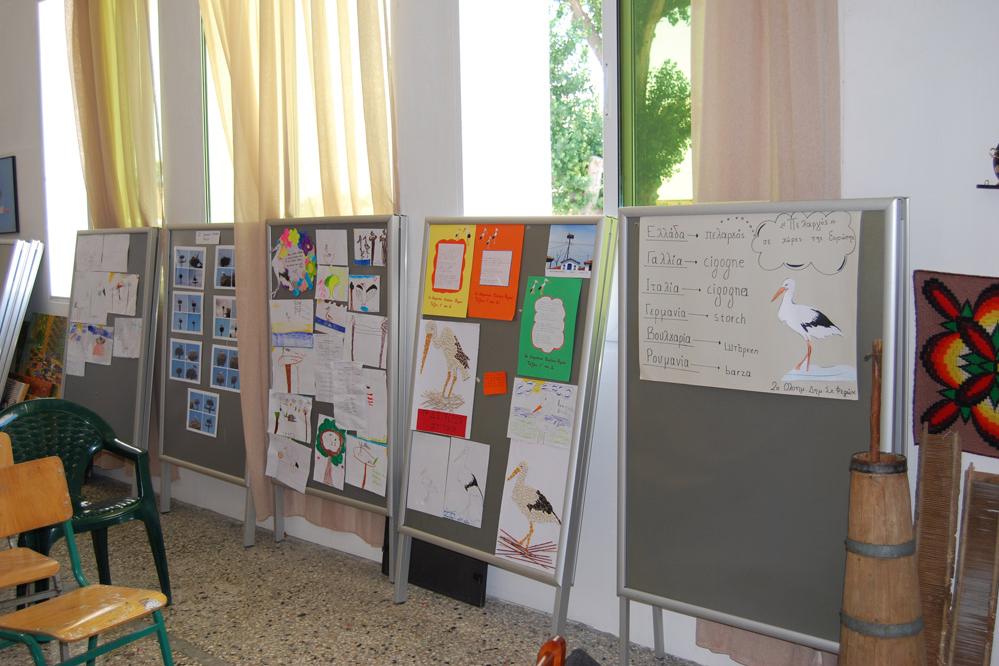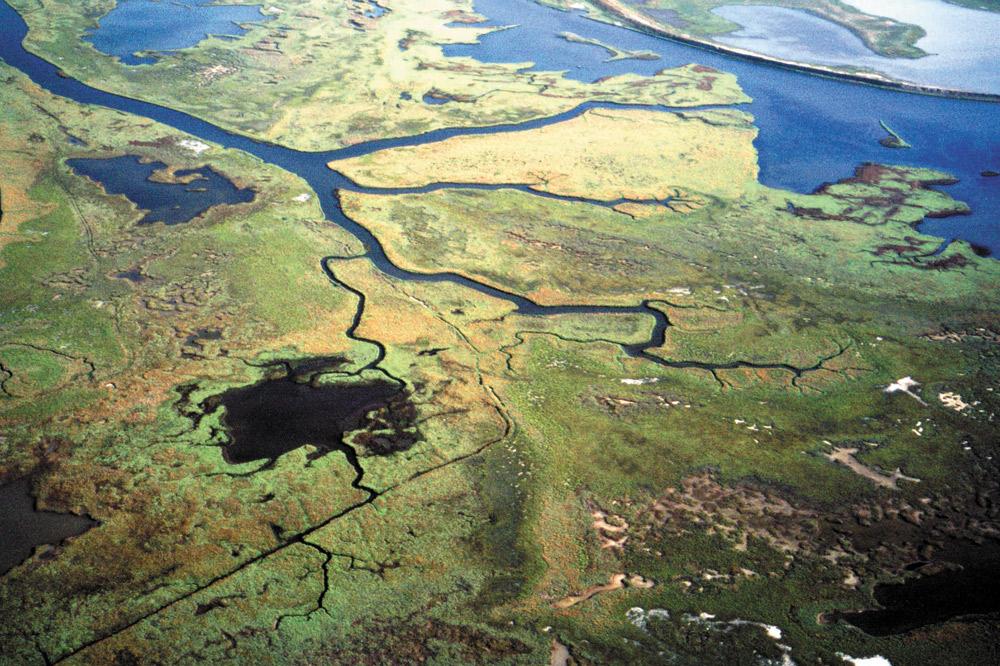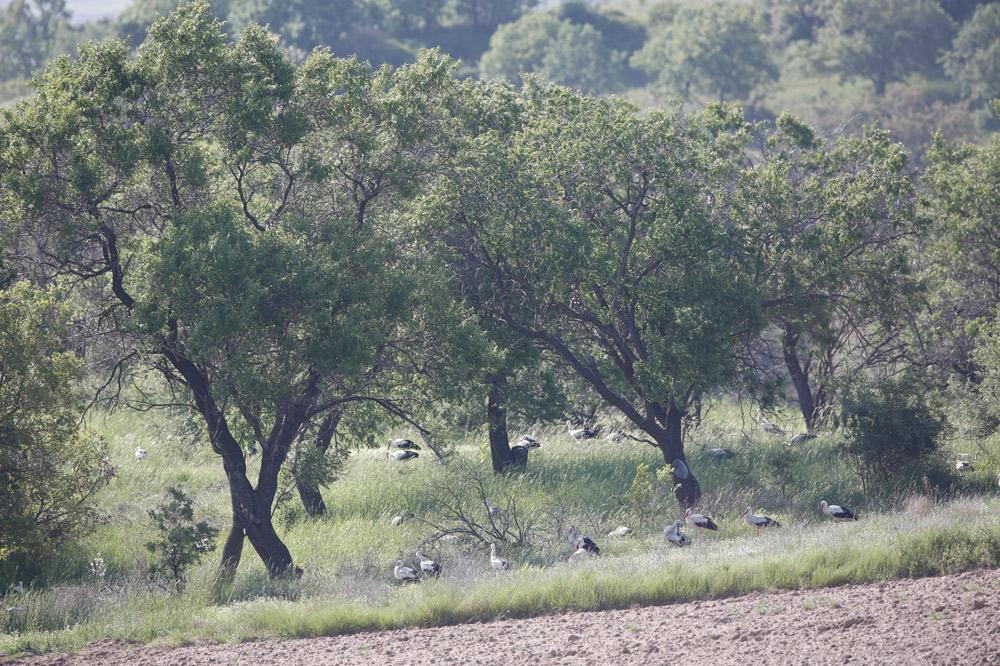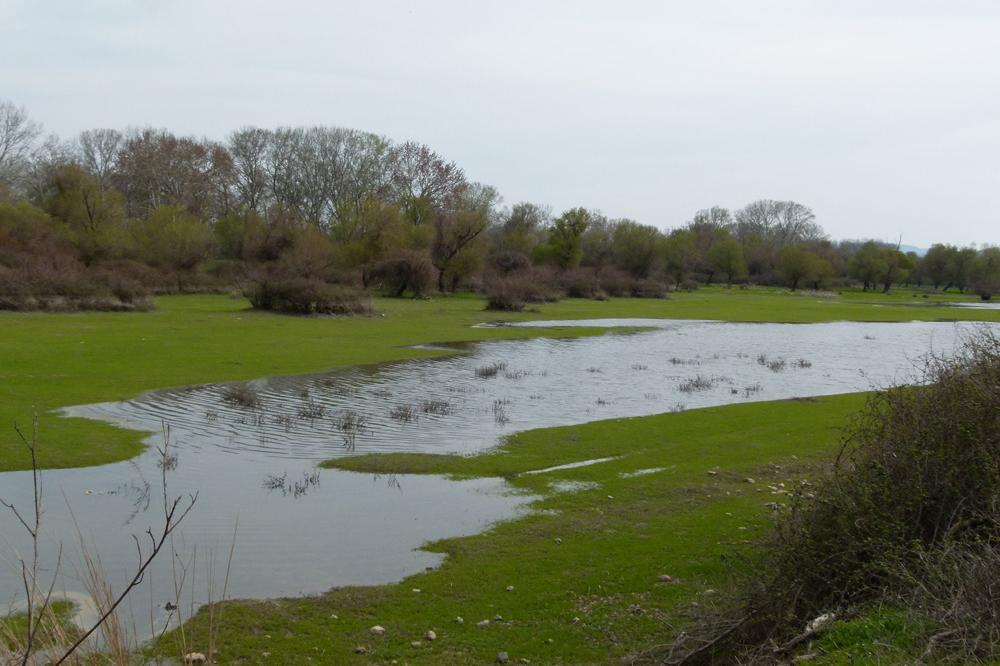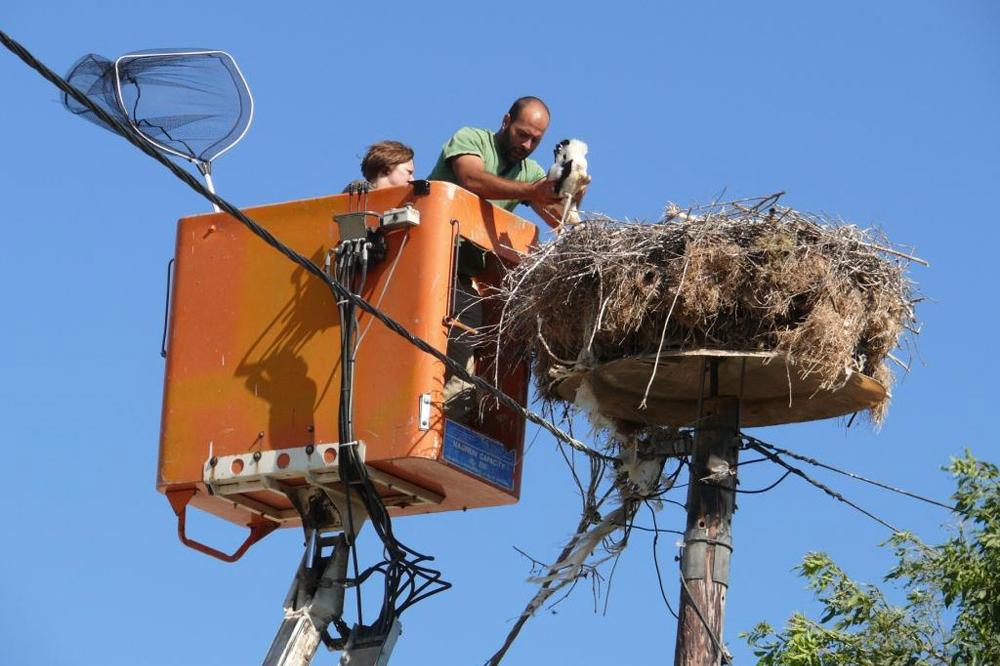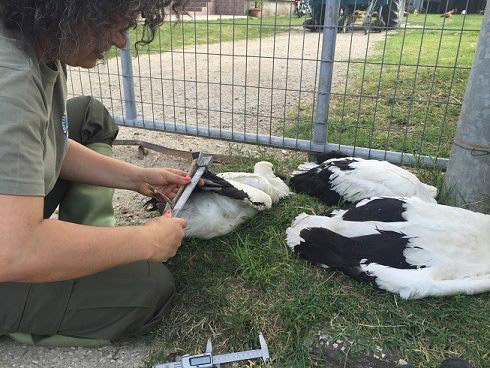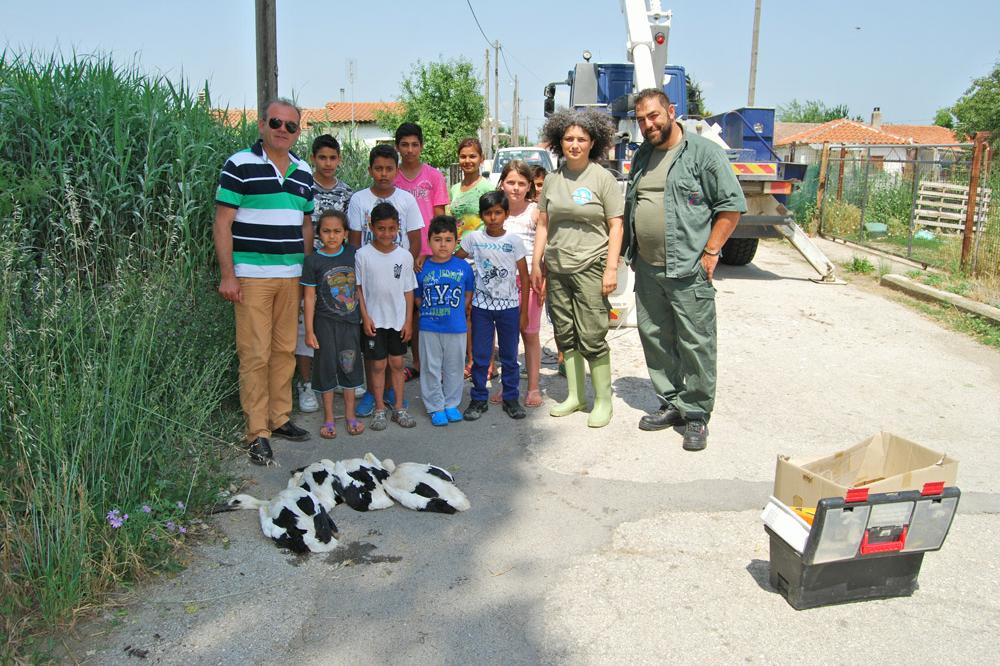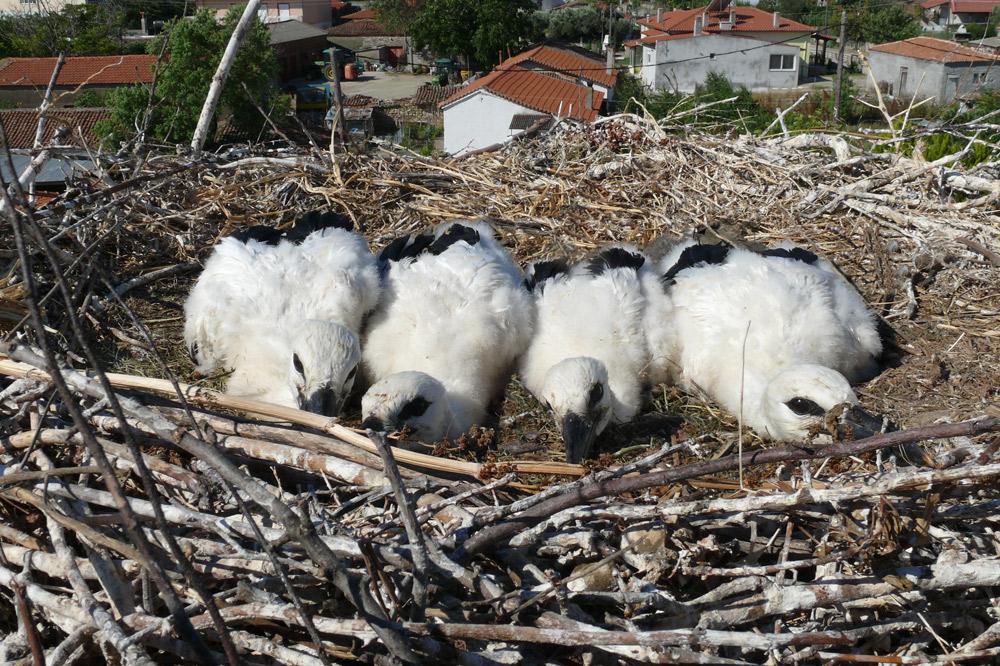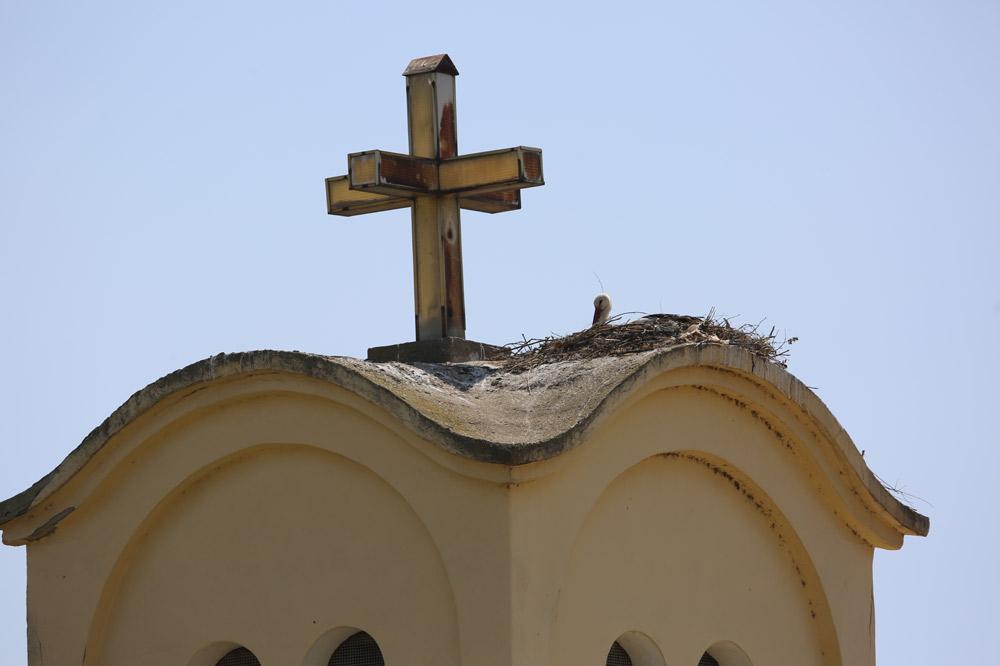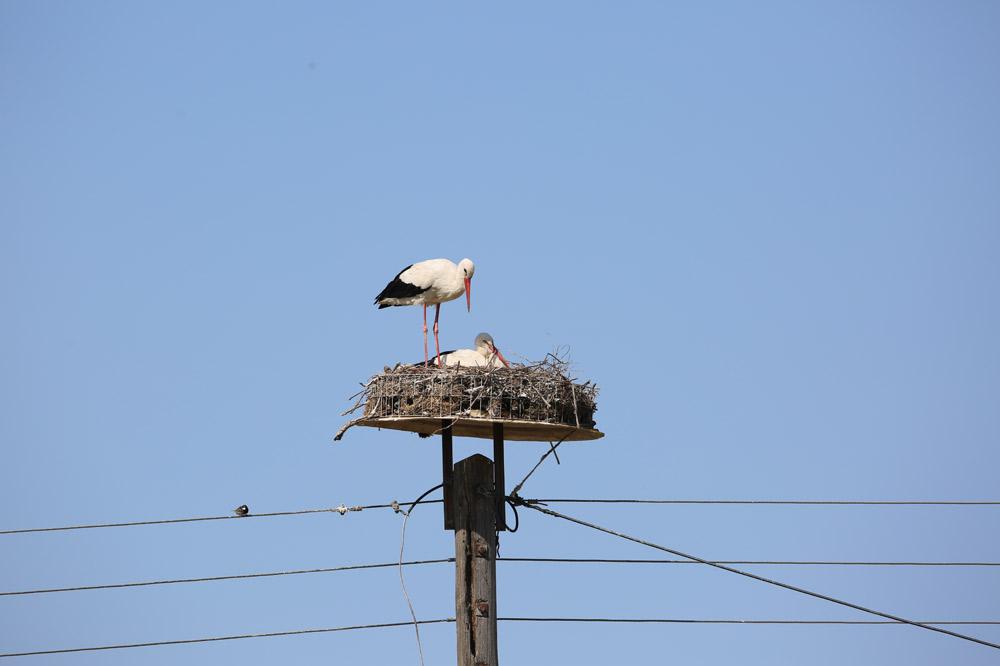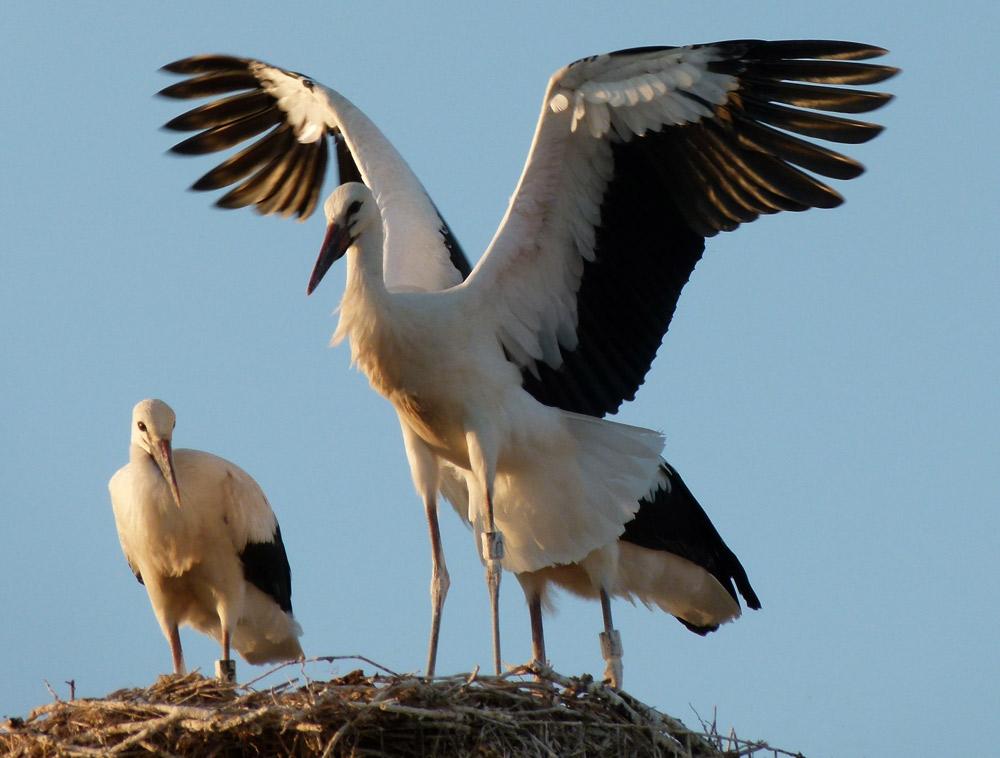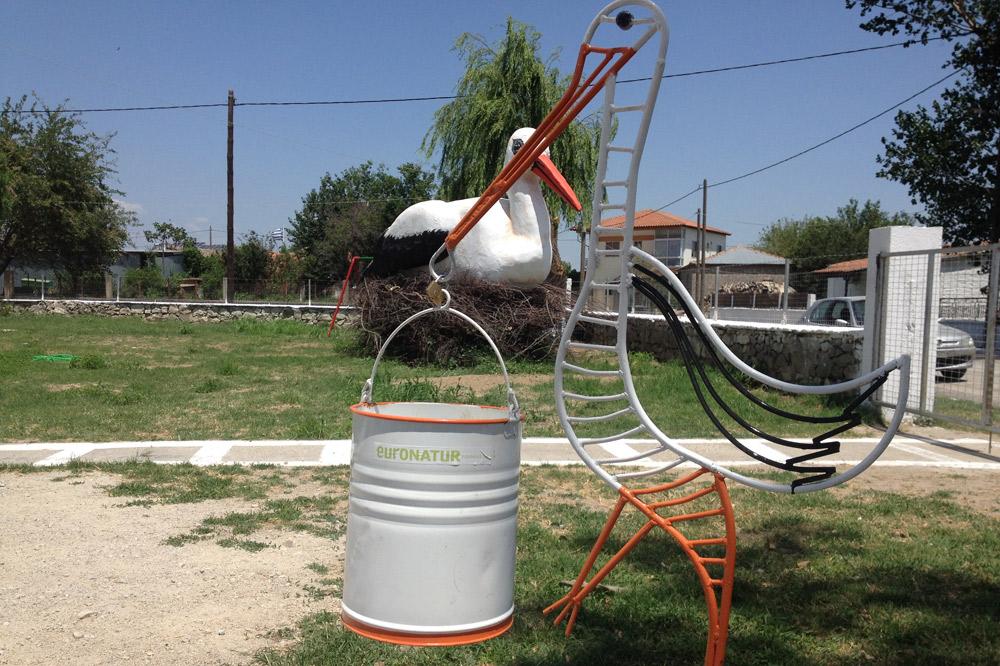Poros, Greece, 2016
Facts and Figures
- Location:
- Poros is located in the far north-east of Greece, close to Maritsa river, which constitutes the border between Greece and Turkey. The river is named Evros (Έβρος) in Greek and Meriç in Turkish language. The river furthermore connects Poros with Belozem, the Bulgarian European Stork Village, lying close to the same river.
- Population:
-
 9 - 11Min. and max. numbers of breeding pairs since the year 2004
9 - 11Min. and max. numbers of breeding pairs since the year 2004 200Inhabitants in the year 2017
200Inhabitants in the year 2017 - White stork in Greek:
- Λευκοπελαργός (Lefkopelargós)
- Nesting sites:
- mainly on electricity poles
- Events:
- Stork Festival (end of May), educational projects, Euro Birdwatch 2013
Contact
Eleni Makrigianni
Evros Delta Management Body
68100 Traianoupolis, Evros Greece
e.makrigianni(at)evros-delta.gr
+30 25510 61000
Google Map
This map is currently hidden to protect your privacy. If you click the button below it will be loaded from Google.
When enabling the checkbox below your preference will be stored as a cookie to automatically display all maps on page load. The cookie will be stored for one week.
Poros: „Moving through“
Poros means passage and it can be linked with White Storks as during migration hundreds of birds are passing through the area.
Events
A Stork Festival is held at the end of May every year, in the yard of the old school and in the central square of the village. Educational projects with the schools of Feres. Euro Birdwatch 2013 was devoted to the White Stork. 350 children participated in the celebration where they learnt and played with activities about the White Stork
Landscape and habitat
Poros is situated on the spot where Maritsa/Evros River begins to split and creates the Evros Delta. The wetland is formed in the estuaries of Evros River, the biggest river in the Balkan Peninsula. It is a National Park, designated as a Ramsar site and protected under European and national laws. Evros Delta is one of the most important wetlands in the Mediterranean especially for migrating and wintering birds. Wet meadows, agricultural land, rice fields and temporary freshwater marshes are the main habitats near the village. The storks mainly forage in wet meadows in the Evros Delta National Park and in wet meadows, agricultural land and pastures near the villages of Poros and Feres.
Greek storks take care of their old ones
Since ancient times, Greeks believed that when the old storks lose strength to hunt and feathers to warm them, then the young storks would hunt to feed the elders and pluck their own feathers to cover up and warm their parents. The belief of this touching sacrifice was so widespread in the traditions of all cultures, that the law in ancient Greece which oblige children to nurse their parents, are known as «Pelargonia» or «Pelargish Law» (from the Greek name for Stork, „Pelargos“).
Conservation
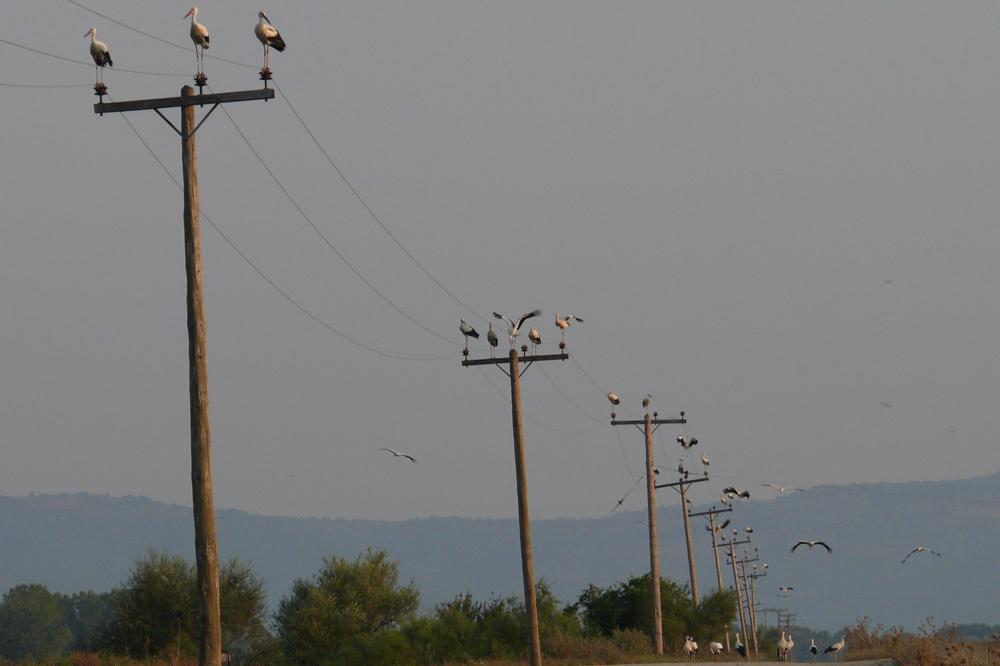
- Stork ringing and monitoring
- Insulation of electric wires against electrocution
- Creation of new and maintenance of old nesting platforms and poles
- Actions for the improvement and creation of wet meadows in the Evros Delta
Local players and EuroNatur partners
Municipal Community of Feres (Municipality of Alexandroupolis), Evros Delta Management Body, Hellenic Stork Group “Ciconia”, HEDNO (Hellenic Electricity Distributer)
 Report sighting
Report sighting
Have you seen a white stork or another interesting species of animal, plant or fungus? Make your observation count for nature conservation and share it with other nature lovers! It’s free and it’s fun!






